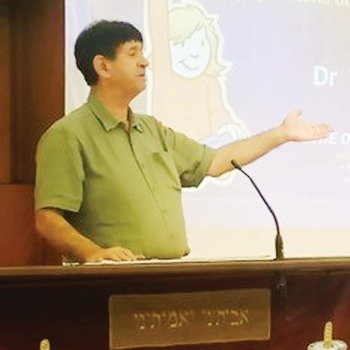
SA

SA Muslims need to ‘move away from extremism’
MIRAH LANGER
When it comes to relations between the Jewish and Muslim communities, “All we get is the hateful extremism. There seems to be no counterweight.” However, during a lecture at the Bet David Progressive Jewish Congregation’s campus in Sandton this week, he asked, “Can we join hands to show the world that Muslims and Jews can actually love one another?”
South African Muslims, Hargey said, need to reclaim a sense of identity away from dangerous foreign influences that impose inaccurate religious interpretations. “The time is right for an enlightened, egalitarian Islam to resist the medieval and militant Islam that is peddled by Wahhabis and other foreign sycophants. South African Muslims must resist religious indoctrination and cultural brainwashing.”
Wahhabism is the form of Islam practiced predominantly in Saudi Arabia. It has been characterised as a particularly conservative and severe interpretation of religious practice.
Hargey said its proponents had become extensive donors to Islamic communities internationally, and in South Africa. “It [Wahhabism] may work in Saudi Arabia, but it will never work in a cosmopolitan society like South Africa. If Wahhabism was a benign force for good we wouldn’t be opposing it. It’s actually dangerous as it sets Muslims against other Muslims as well as non-Muslims.”
Going forward, South African Muslims must become “independent interpreters” of their faith. “Localised Islam is critical to the future. We need an Islam that is relevant to this society, and rooted here.”
In South Africa, there is tension between South African-born Muslim community members and Muslim immigrants coming into the country bringing in their own often disparate traditions, Hargey said. The strain between these two segments arises from the fact that ultimately, there is “no such thing as one Islamic culture”.
Instead, the religion is enmeshed with different cultural and national customs. However, some of the “cultural baggage and political conservatism” of different Muslim communities is problematic.
Hargey cited practices such as female genital mutilation, stonings and honour killings, and different types of body and face coverings as examples of customs that have no actual relation to the Qur’anic-based religion. “The chasm between Qur’anic Islam and populist Islam is most frightening,” he said.
At the heart of this chasm lies theological misinterpretation of the core texts in Islam. “If you want to understand what’s happening in the Muslim world today, you have to understand Islamic theology. It’s vital,” Hargey said.
In Islam, the Qur’an is accepted as the word of G-d given by the Angel Gabriel to the Prophet Muhammad. Thus, proposed Hargey, the fact that other texts, including fatwahs, shariah laws, and the Hadith (sayings of the prophet) have now been given equal stature in the religion is at the heart of its contemporary problems.
These texts are interpretations and compilations shaped by man. For example, Hargey said, the Hadith was compiled three hundred years after Muhammad died. Fatwahs were “opinions” and shariah was “not divine law”, but rather a compilation of rulings dating from the medieval era.
As such, said Hargey, there should be reform to ensure the singular sacred status of the Qur’an. “If Muslims followed only the 6 236 verses of the Qur’an, we would have a far better public-relations image and more importantly, we would live in harmony and peace with everyone, including our Jewish sisters and brothers.”
Hargey said he was part of a reformist group of Muslims who wanted to bring about these changes. About 85% of South African Muslims can be considered Orthodox, while another 5% see themselves as totally assimilated – “When you change your name from Muhammad to Mo,” Hargey quipped.
He is part of the last approximate 10% that wants to ensure that “every Muslim should become theologically self-empowered”.
Hargey, who obtained his doctorate from Oxford University and is a provost of the Oxford Institute of British Islam, founded the Open Mosque in 2014 for this purpose.
While its numbers are still small – at times it has a dozen congregants for Friday prayers and 50 or 60 members for important holy days – its mission remains all the more crucial. “People are fearful [to seek reforms]. You will become a non-person in Muslim society. It’s a lonely task. I should know,” mused Hargey, pointing out that he had received death threats and his premises had been firebombed.
Moreover, he pointed out that reform and change aren’t a one-way road. South African society also has to work on how it positions its Muslim members. “The mainstream [South African society] should acknowledge Muslim grievances relating to racism, rising criminality, and Islamophobia,” Hargey said.




